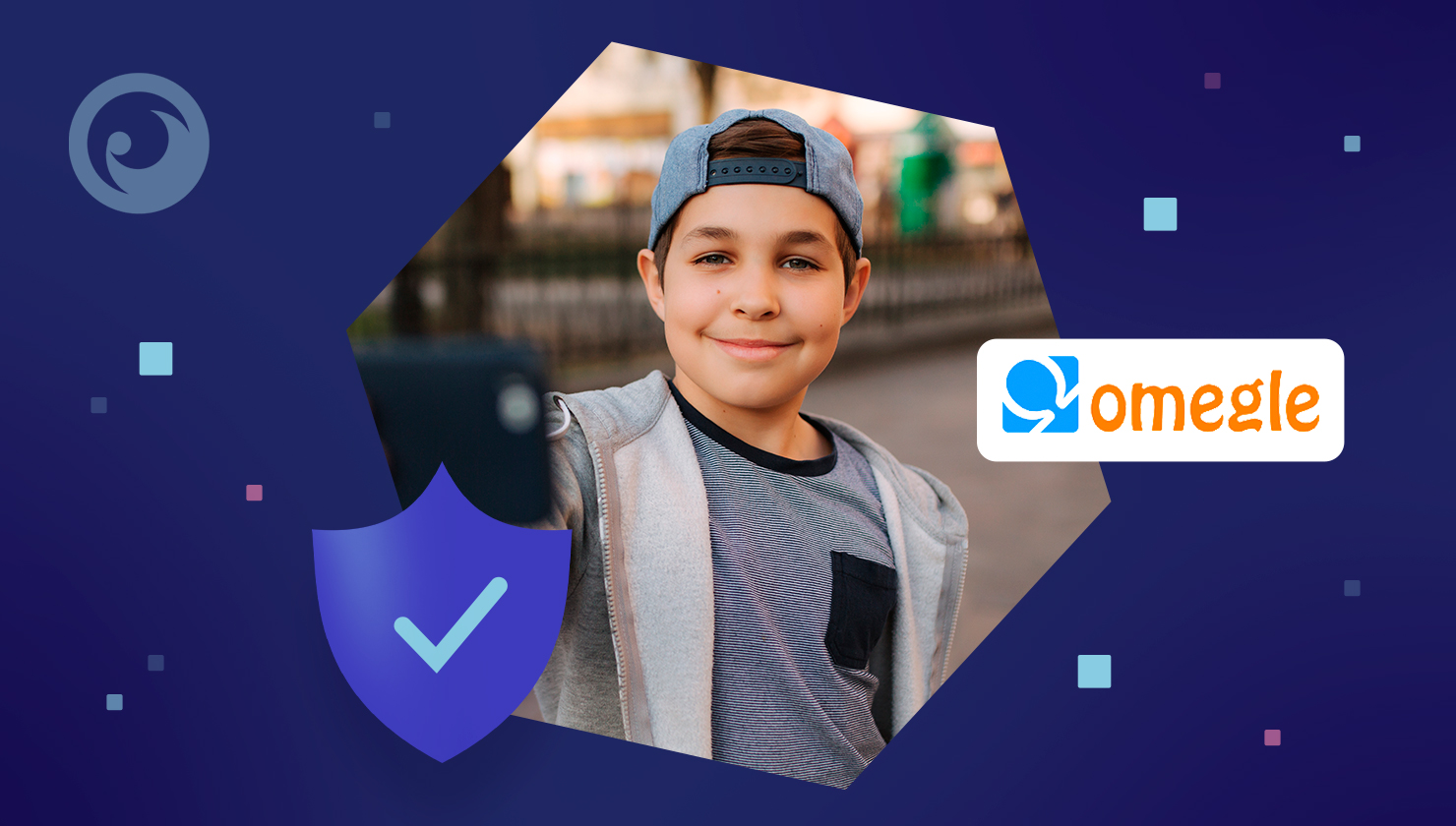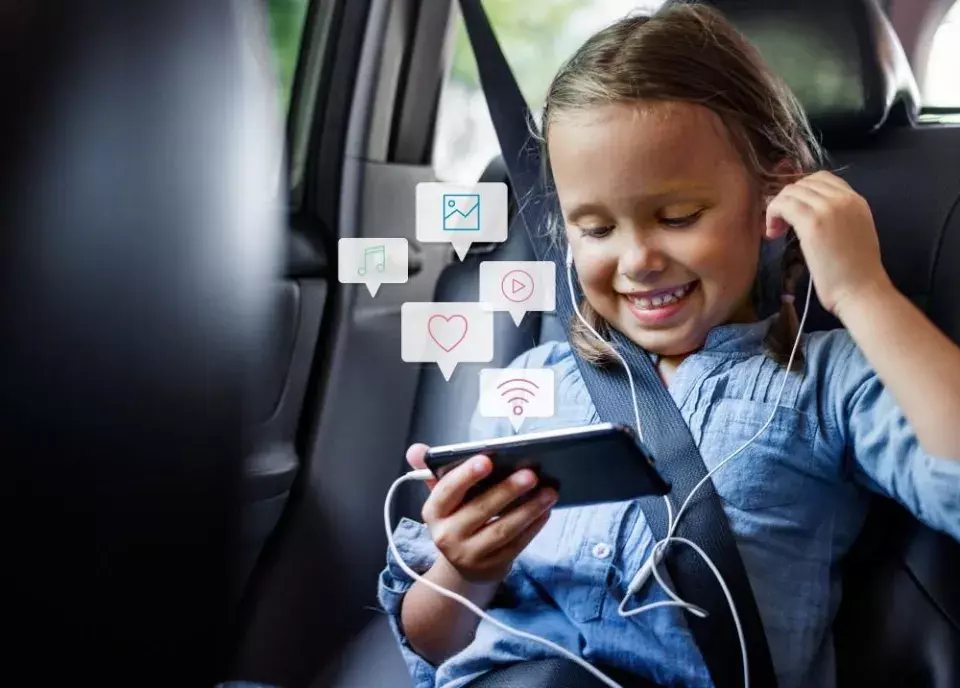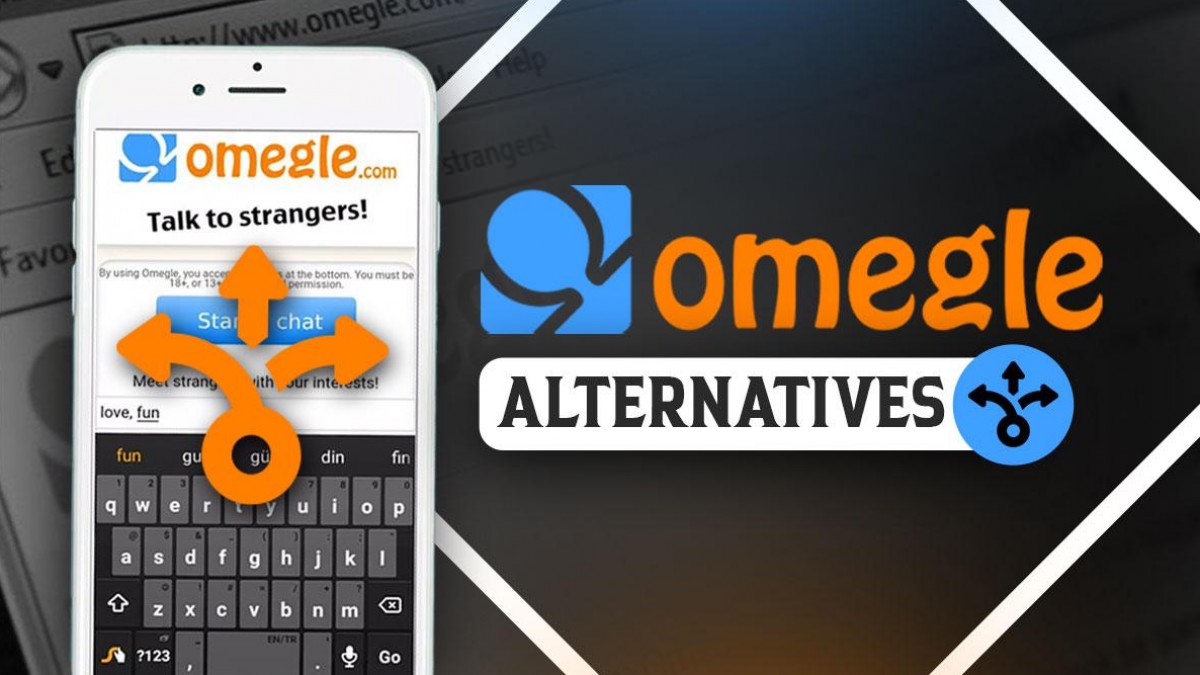
Omegle, a roulette-style chat app, provides a platform for socializing with strangers. However, the question remains: Is Omegle safe for kids?
It's crucial to delve into the dynamics of this video chat platform to understand the potential risks and uncover ways to safeguard children from its darker aspects.
The truth is, this platform also has a dark side. This article aims to shed light on why Omegle can pose risks and offers insights into safeguarding oneself from potential dangers on this platform.
What is Omegle?
Omegle is as an anonymous, real-time platform for text and video chat, connecting random users globally for one-on-one chat sessions.
As of January 2023, Omegle's monthly traffic soared to 70.6 million visits, underscoring its enduring popularity since its establishment in 2009.
While the platform predominantly attracts young adults aged 18-24, it's noteworthy that children as young as seven or eight years old have been known to use Omegle. Let's delve into the offerings of Omegle to gain insights into its widespread appeal.
Is Omegle safe?
Despite its popularity, Omegle raises substantial safety concerns, especially for young adults and children.
One of the primary issues lies in its lack of user registration, verification procedures, and age verification.
Users can access chat rooms without providing an email address or any form of identification, creating an ideal environment for online predators and cybercriminals.
Also Read: How to Get Unbanned from Omegle?
What are the Dangers of Omegle?

Omegle presents various risks for both children and adults. Let's examine them individually.
1. Online Predators
The anonymity of Omegle makes it susceptible to exploitation by online predators, preying on unsuspecting children who might be using the platform.
2. Exposure to Inappropriate Content
The absence of age verification poses a risk of accidental or intentional exposure to harmful content, including nudity or explicit material, especially for children and teenagers.
3. Little Accountability and Partial Moderation
Omegle's lack of user accountability allows individuals to behave without restraint in chats. Although users can report inappropriate conduct, moderation is limited, and only certain types of behavior are prohibited in moderated chats.
4. Stalking, Blackmail, and Cyberbullying
Cybercriminals may capture and misuse chat content, leading to stalking or blackmail if personal information is revealed. Additionally, the platform's open chat system provides a fertile ground for cyberbullying.
5. Data Retention
Omegle retains user data, including chat logs, online identifiers, and IP addresses for 120 days, with "Saved Chatlogs" being stored indefinitely. This raises concerns about privacy and the potential misuse of shared information.
How to Be Safe on Omegle?
For those determined to use Omegle, implementing precautionary measures is crucial:
1. Report Inappropriate Users: Promptly report users engaging in inappropriate conduct and exit the conversation to protect yourself from online abuse.
2. Avoid Suspicious Links and Ads: Steer clear of clicking on links or ads shared by other users, as they may lead to malicious websites or malware.
3. Avoid Sharing Private Data: Due to the platform's anonymous nature, exercise caution and refrain from sharing personal information that could be exploited by malicious users.
4. Use a VPN: Employing a VPN enhances online privacy by masking your actual IP address, making it more challenging for the platform or malicious users to pinpoint your virtual location.
Does Omegle Have Parental Controls?
No, Omegle lacks parental controls, age verification systems, or features to block users.
Despite reporting incidents of online abuse, the platform's limitations in blocking or reporting inappropriate content necessitate the use of external parental control apps and monitoring tools.
Conclusion on Is Omegle Safe for Kids
Omegle's safety concerns for children and teenagers are substantial, with its anonymous design, limited moderation, and failure to address flaws underscoring a prioritization of profit over child protection.
Given these risks, it is strongly recommended to employ antivirus software, VPNs, and parental controls to protect children online.
Safer Omegle alternatives exist for those seeking online chat experiences for kids, offering a more secure environment than Omegle.

